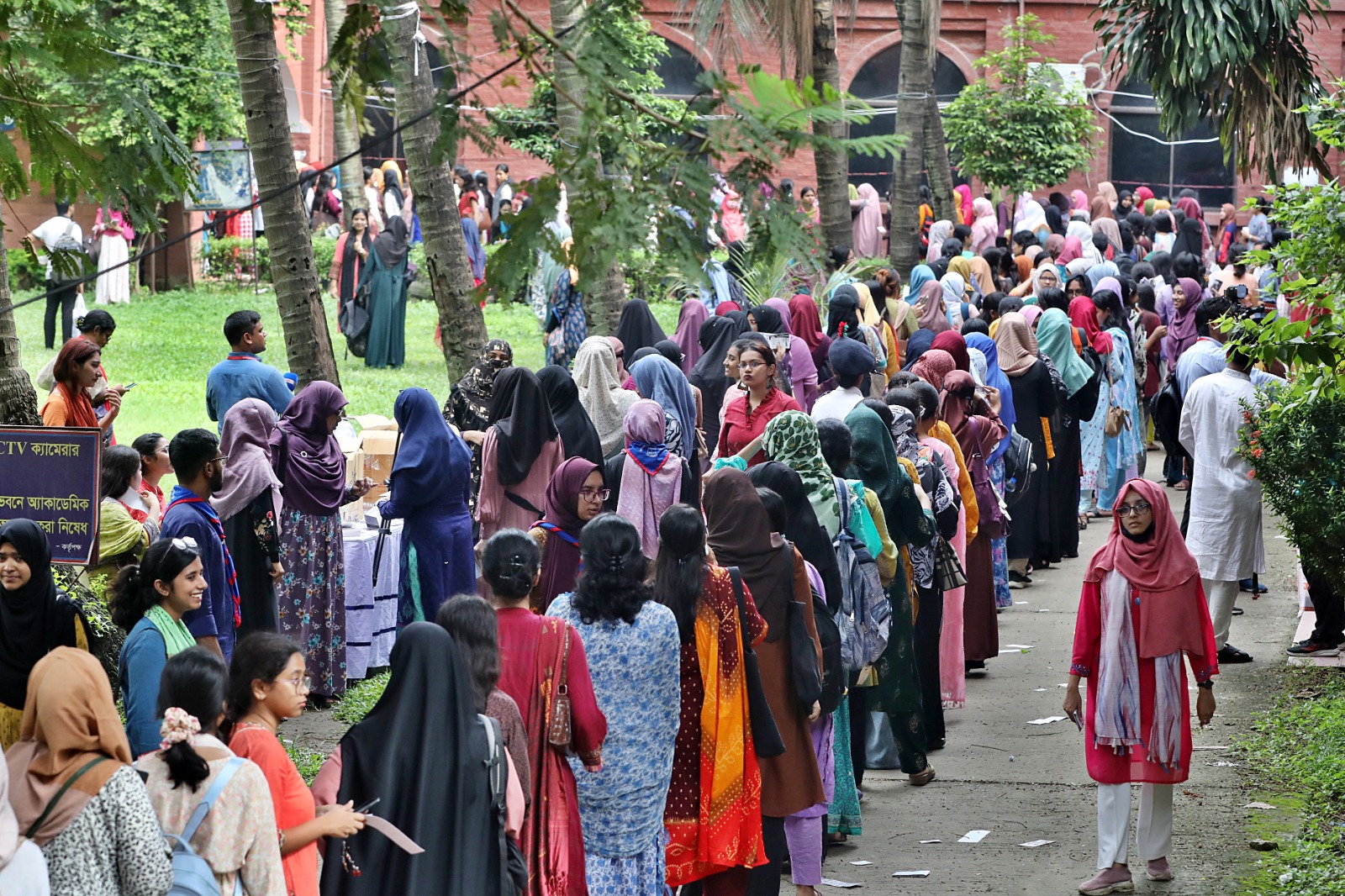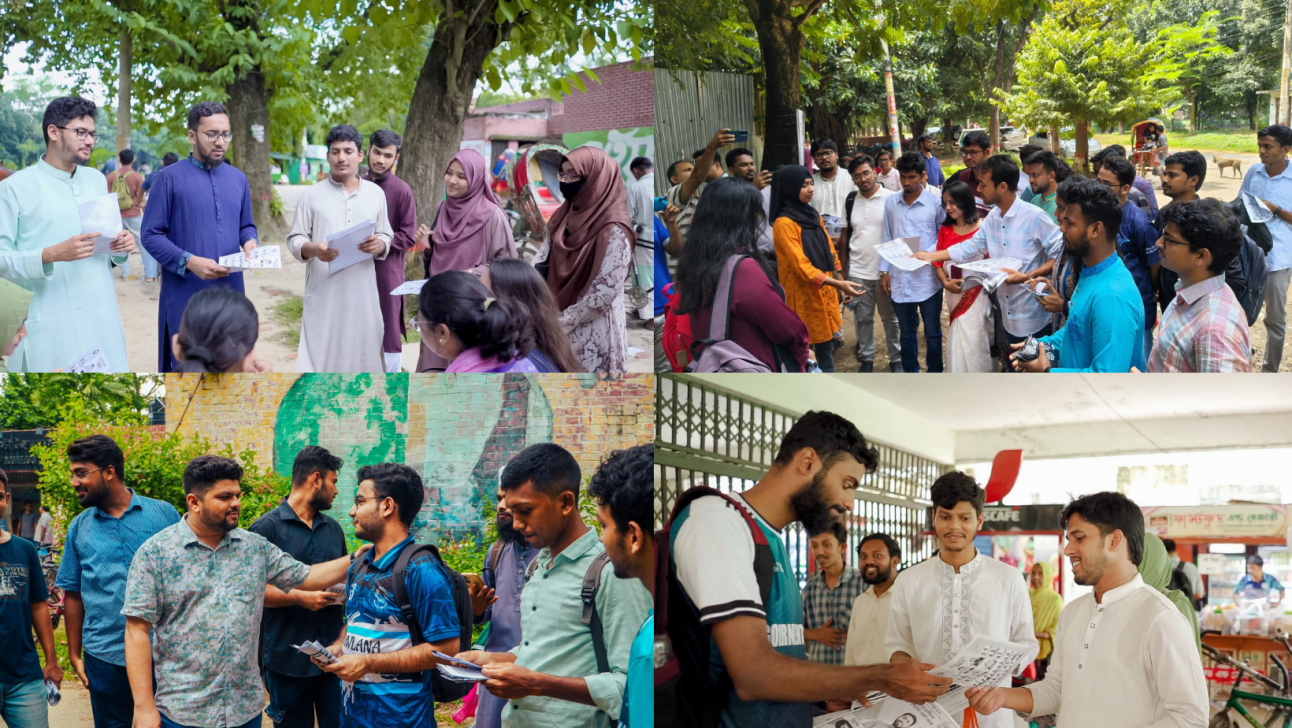My Ducsu voting experience: The good and the bad

As a politically unaware teenager, I observed the events of the 2019 Ducsu election with a mix of fascination and amusement, wondering why a university election received so much media coverage. Now, six years later, as I voted for the first time in an election, the question is more a criticism of our broken political structure. Despite my apprehensions about electoral politics, I was excited to see what changes the Ducsu election brings for the students. For weeks, the candidates campaigned and made many promises, and it was time to test the trust they had accumulated among the students. On the day of the election, the atmosphere around the campus was festive and celebratory. For many students like me, it was their first time participating in an election, and the enthusiasm was palpable as they queued in front of the voting booths at 8am sharp. The unprecedented participation indicated an eagerness for democracy after a long hiatus.
For years, many remained hopeless about having a fair election. Therefore, everyone in the country was looking forward to the Ducsu polls—a test of the students' political consciousness, an identification of where the political compass reached. And were their hopes met with? I believe it's too early to answer. It was 12pm when I went to campus to vote on the day of the polls. The police had closed off entry points for outsiders, and students with their identification documents were allowed in. It was a slow walk to the voting centre. The scouts and officers on duty helped with directions. What was curious, though, was that many students were still campaigning at the gate of the voting centre despite the official rule prohibiting it. I had three students come up to me with requests that I vote for their preferred candidates in particular ranks.
However, the voting process was absolutely seamless, and I finished in no time. For the next four hours, I roamed around the campus visiting multiple voting centres at the Teacher-Student Center (TSC), University Laboratory School and College, and the Nabab Nawab Ali Chowdhury Senate Bhaban with my friends. The outpouring of students was incredible to witness. Many came from Cumilla and Khulna to show support for their candidates of choice and exercise their rights. While multiple rumours floated around online about voting centres being out of action, the reality was completely different. There was little to no ruckus till the afternoon. On the Senate premises, some people were handing out biscuits and bananas to the students.
At 4pm, I headed home, and when I came back around an hour later through the Nilkhet entry point, the entire road was filled with people. The next few hours on the campus grounds were tense with Jatiyatabadi Chatra Dal activists instantaneously calling press conferences and rumours of vote mismanagement. I heard news of some candidates trying to bypass the rules. Another round of press conferences took place following processions and slogans. There were some complaints regarding the LED screens being turned off during the vote count in multiple centres. With an anxious mind, I came home around 10:30pm and waited for the election results eagerly, like every other student of DU. The weeks-long anticipation was brought to an end after midnight, when the Bangladesh Islami Chhatrashibir-backed panel won in a landslide victory.
The outcome of the election has brought a myriad of political anxieties for the students and aspirations of the masses. Despite accusations of vote manipulation, the prominent consensus is that democracy was practised in Bangladesh after a long time, and the students were given an actual choice to exercise their rights. What was indeed remarkable was the participation of nonresident students in hordes. Yet there were inadequacies in the administration of the election that must be addressed and criticised. A university election getting special national attention is another aspect of the media and political structure that should be the subject of criticism. As a citizen, I wonder when this dominance-inserting culture of Bangladeshi politics would end—why the sight of RAB, Police and Detective Branch of Police has been normalised in public universities. The horizon for student politics is now ripe with new possibilities, and I can only hope that those elected will serve the students to the best of their abilities. And those who voted for them will hold them accountable.
Nawshin Flora is a writer and student of Dhaka University.
Views expressed in this article are the author's own.
Follow The Daily Star Opinion on Facebook for the latest opinions, commentaries and analyses by experts and professionals. To contribute your article or letter to The Daily Star Opinion, see our guidelines for submission.



 For all latest news, follow The Daily Star's Google News channel.
For all latest news, follow The Daily Star's Google News channel. 

Comments